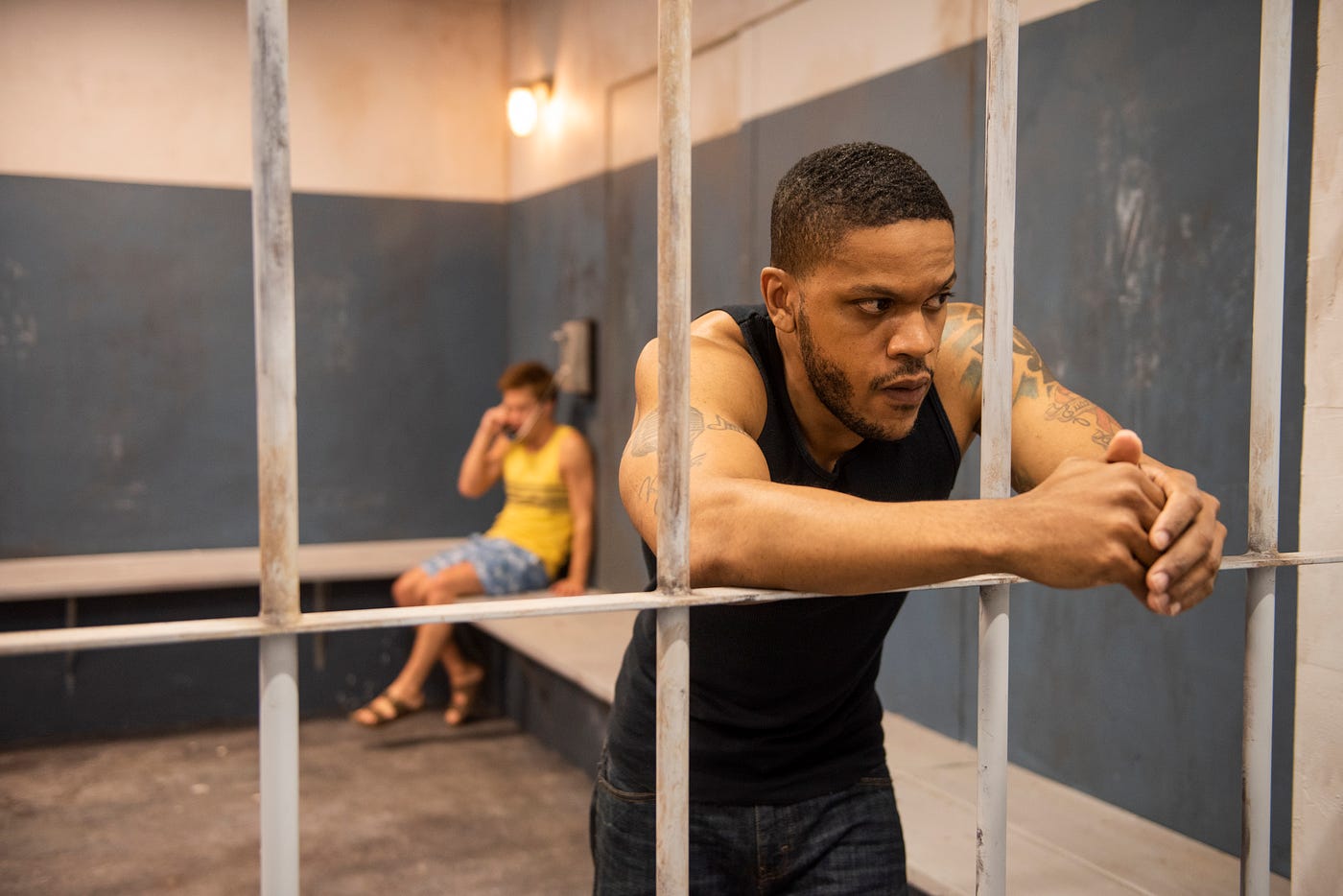
Like it or not, having a good recommendation is key for any competitive job. Your work experience, presentation, and charisma are helpful in an interview but your prospects live or die by your provided recommendations. In my day job, I find myself hiring a new staff member at least twice a year, and I’m always learning more about a candidate through their provided recommendations compared to their in-person interview.
Does the person providing the recommendation call me back right away, if at all? Do they share glee or sorrow to hear the candidate is moving on?
The weight of a good recommendation is at the forefront of my mind when arriving at The Recommendation, an adaptation of the play from Jonathan Caren from Windy City Playhouse that focuses on trying to create a more intimate experience from any previous productions. Upon checking in, I receive my letter of acceptance to Brown University, slickly providing context for the audience that we’re part of the class of 2011. On the backside of the letter are the rules of physical engagement with the space and performers; yet in writing this review later on, I notice the role the audience will be playing is not specified. Still, the acceptance letter sets a production standard for The Recommendation that excites me since I failed to make the most of my college experience, so I’m ready to try again.
As I finish reading the letter, Iskinder (Michael Aaron Pogue) arrives at Brown, speaking at us about how hard he’s worked as a son of African immigrants to get here, while his roommate Aaron (Julian Hester), the son of privileged white parents from LA, hasn’t lifted a finger to get into Brown. Leading the audience from the lobby into Iskinder and Aaron’s college dorm room for a jello shot-filled party, Aaron learns of Iskinder’s desire to become a lawyer. Aaron quickly secures a recommendation from his lawyer father for Iskinder to use when applying at the best law firms in LA.
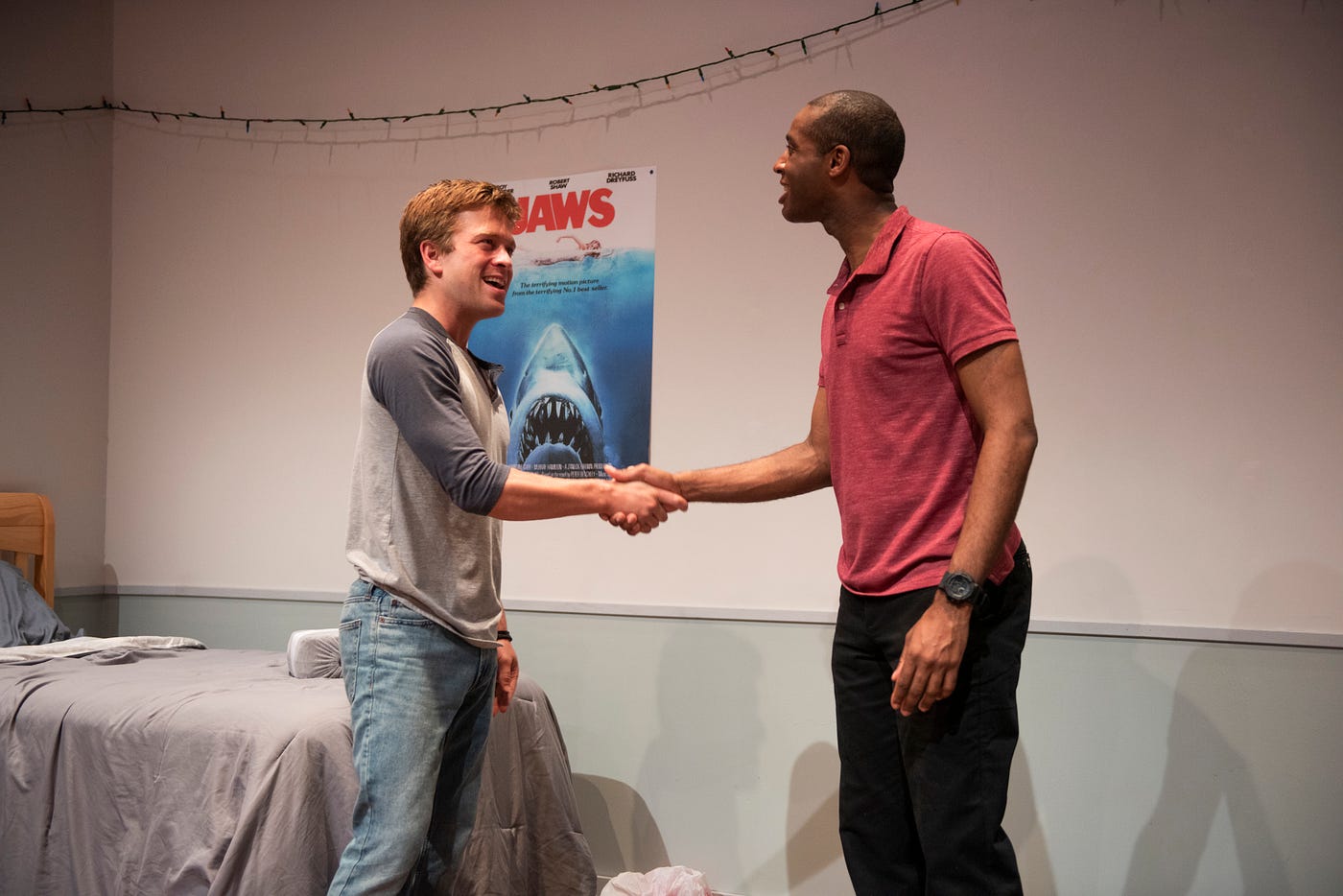
Iskinker skips over the rest of college, informing the audience that upon graduation Aaron’s father came through with the recommendation. He beckons us to follow him down a long hallway that goes around the backside of the dorm room, giving me the sense that we’re twisting around a theatrical space carefully laid out for maximum usage. Being part of the class of 2011, I decide that I must be Iskinder and Aaron’s third, silent roommate. I find myself joining them cross-country on the stunning back deck of a LA home where they’re housesitting. They’re drinking beer to beat the heat. The yard is perfectly cut and the deck is smoothed over with a pool partially visible to the side. I sit down on the grass, enjoying the “sun” beating down on me. Having survived some of the worst Chicago snowfalls on record, I’m lost in the Californian coastal weather, believing these two young men have figured out life.
Get Patrick B. McLean’s stories in your inbox
Join Medium for free to get updates from this writer.
SubscribeSubscribe
After running out of beer, Aaron makes a run to the store and gets pulled over due to a broken tail light and then arrested for unpaid parking tickets, earning himself a trip to the drunk tank. The audience finds itself under buzzing lights hung from the ceiling where the plastic covering the lights is slowly falling apart. I lean against the hard cinder block wall, which cools me as I begin to sweat in the hot temperature of the drunk tank. I avoid another person who we soon learn is Dwight (Brian Keys). (Iskinder stays behind on the sunny deck.) The performers acknowledge out loud that they are alone in the holding cell, forcing the role of the audience to be ghosts rather than others locked up in the drunk tank as well. We silently observe as Aaron cuts a deal with Dwight: Aaron’s father will provide Dwight legal counsel for parole if Dwight keeps Aaron safe while locked up. Yet, in transferring to the dark and cramped county jail, Aaron realizes he got more than he bargained for in his exchange with Dwight, and goes back on his promise, electing to leave Dwight locked up and tell a different version of events to Iskinder when released.
It’s only when being returned to the lobby for a lengthy twenty minute intermission that I realize how little I feel like I’m a part of the world of The Recommendation. Other than guiding us to each new environment with hand motions or putting a pause in the action to speak “at” us in asides and monologues, Iskinder does not really interact with the audience, telling us stories as we stand nearby, merely passive listeners. Despite standing physically a few feet away from the audience, Iskinder is as far away from me as a character as in a traditional theatrical performance. Aaron fairs only slightly better, with a few, seemingly pre-written and no-response-required exchanges happening early in Act One. While the dorm party scene plays out, I’m offered a jello shot by the bartender, who appears to have no role in the story world nor is he actively enjoying the party. Additionally, as we’re cooling off in the depressing and dank drunk tank, the dialogue between Aaron and Dwight states they’re alone, cementing my role in The Recommendation to be nothing more than a fly on the wall.
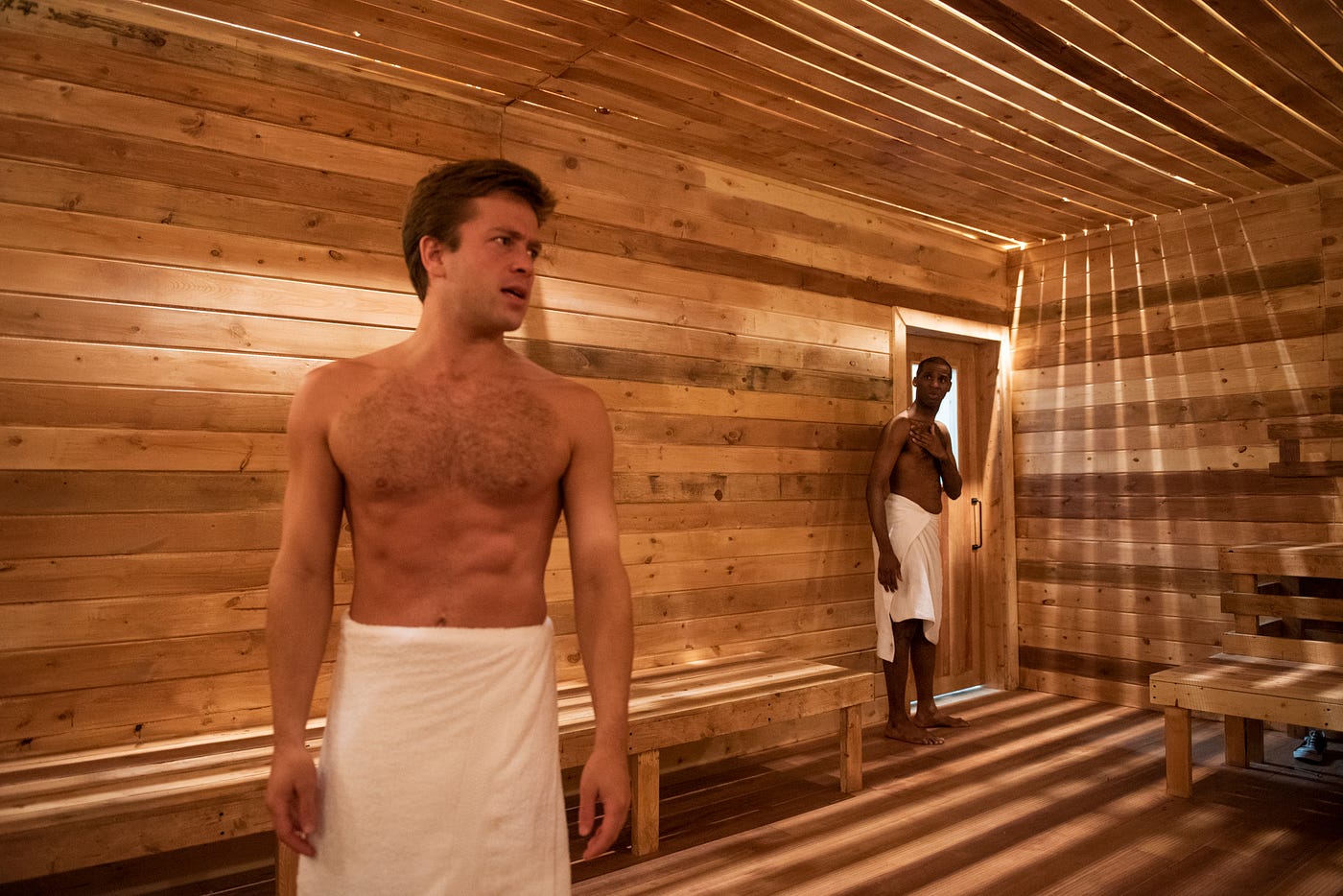
When Act Two begins, what little interaction we got in Act One becomes a distant memory. We get only three moments in Act Two where the performers address the room (with no response needed from the audience). Finally, Iskinder leads us through a series of scenes until finally the escalating tension between the three men comes to its climax in a sauna. With each journey to a new room, I became even more detached from the action as The Recommendation unfolded. This feeling was exacerbated by stagehands re-positioning audience members in some scenes as if preparing a de facto stage, rather than the actors using the space organically. This sense of recreating a traditional stage in a non-traditional venue was also emphasized when the audience filed into a room and then waited in silence for the scene to begin rather than action occurring concurrently with our arrival.
The only aspect of The Recommendation that felt as if I was living in the same world as the characters came from the excellent work put into the physical sets. From start to finish, the stunning design work totally pulled me into the space, taking note of the tremendous detail in each environment. Lauren Nigri’s masterpiece of a drunk tank functioned like it would in real life, including a locking metal door. Caitlin McCarthy’s set dressing of the dorm room rang true thanks to Iskinder and Aaron’s dirty laundry crumpled on nearly every flat surface possible. When in the sauna, each time the lights (by Jason Lynch) darkened the room in red tones and I heard the hiss of steam (courtesy Tony Bruno’s sound design) under my feet, I felt the heat of that room and began forming drops of sweat on my forehead.
While the production team of The Recommendation crafted a rich, detailed environment that I gladly visited, it didn’t make up for the audience’s removed engagement from story and character. By being told the plot from start to finish through sensually direct monologues and removed scene performances, Windy City Playhouse’s The Recommendation provides the lightest and least engaging immersive experience, leaving me to believe mounting The Recommendation would have been best in a traditional play venue setting.
The Recommendation runs through September 22nd. Ticket are $65 to $100.
NoPro is a labor of love made possible by our generous Patreon backers. Join them today!
In addition to the No Proscenium web site, our podcast, and our newsletters, you can find NoPro on Twitter, Facebook, YouTube, Instagram, in the Facebook community Everything Immersive, and on our Slack forum.
Office facilities provided by Thymele Arts, in Los Angeles, CA.



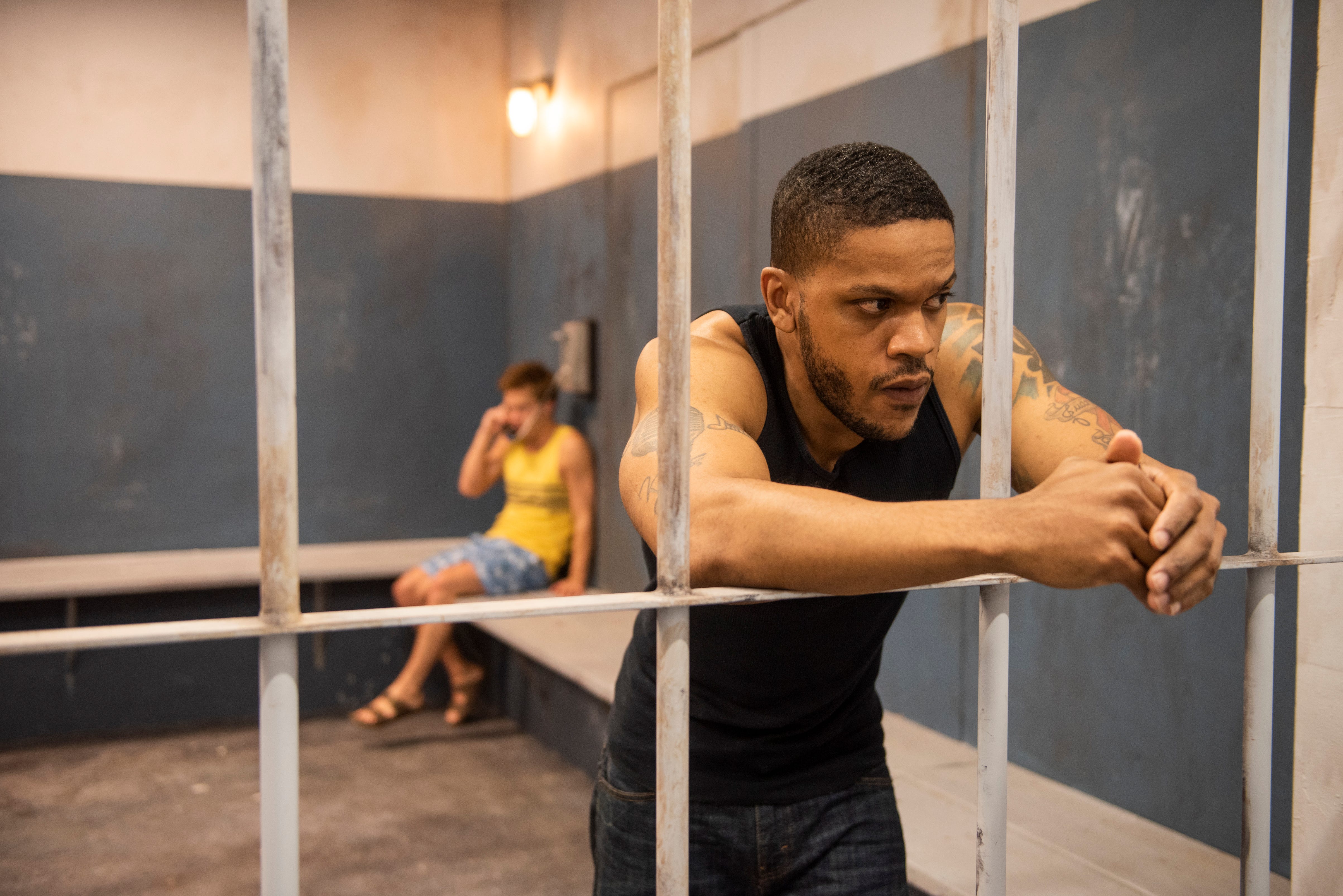


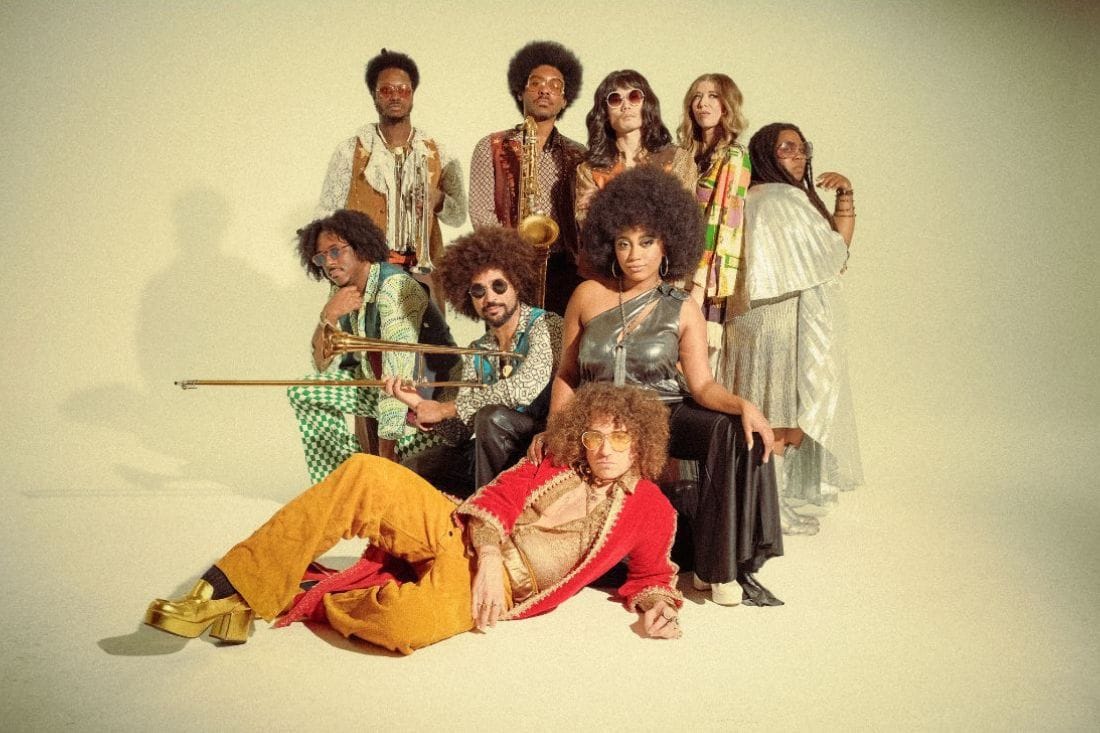

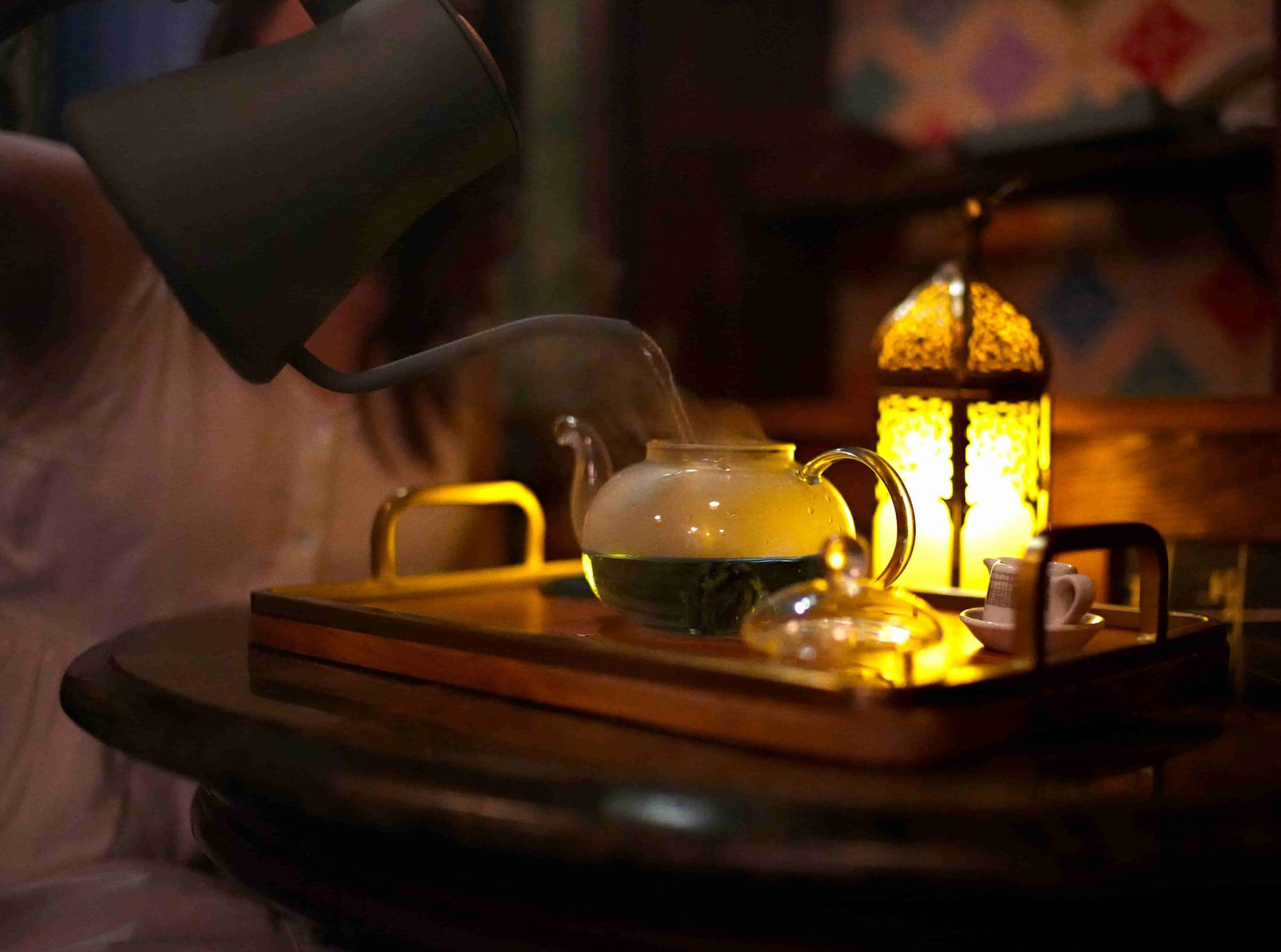





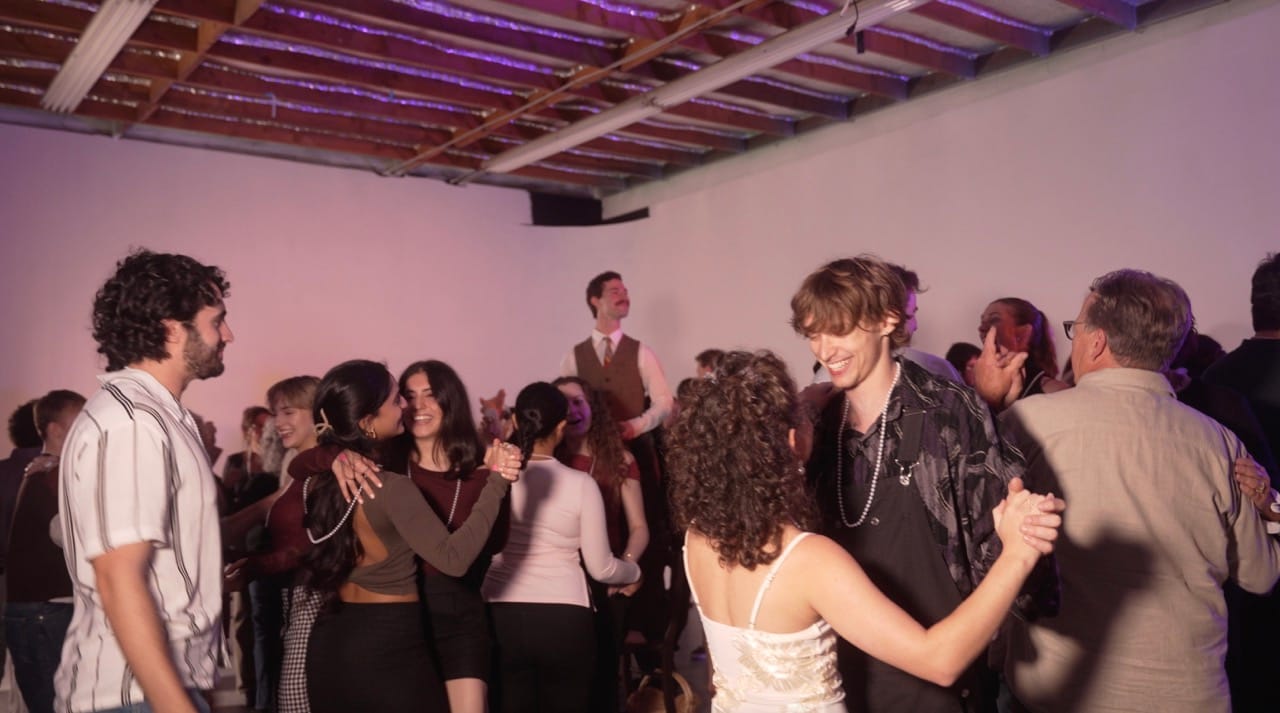
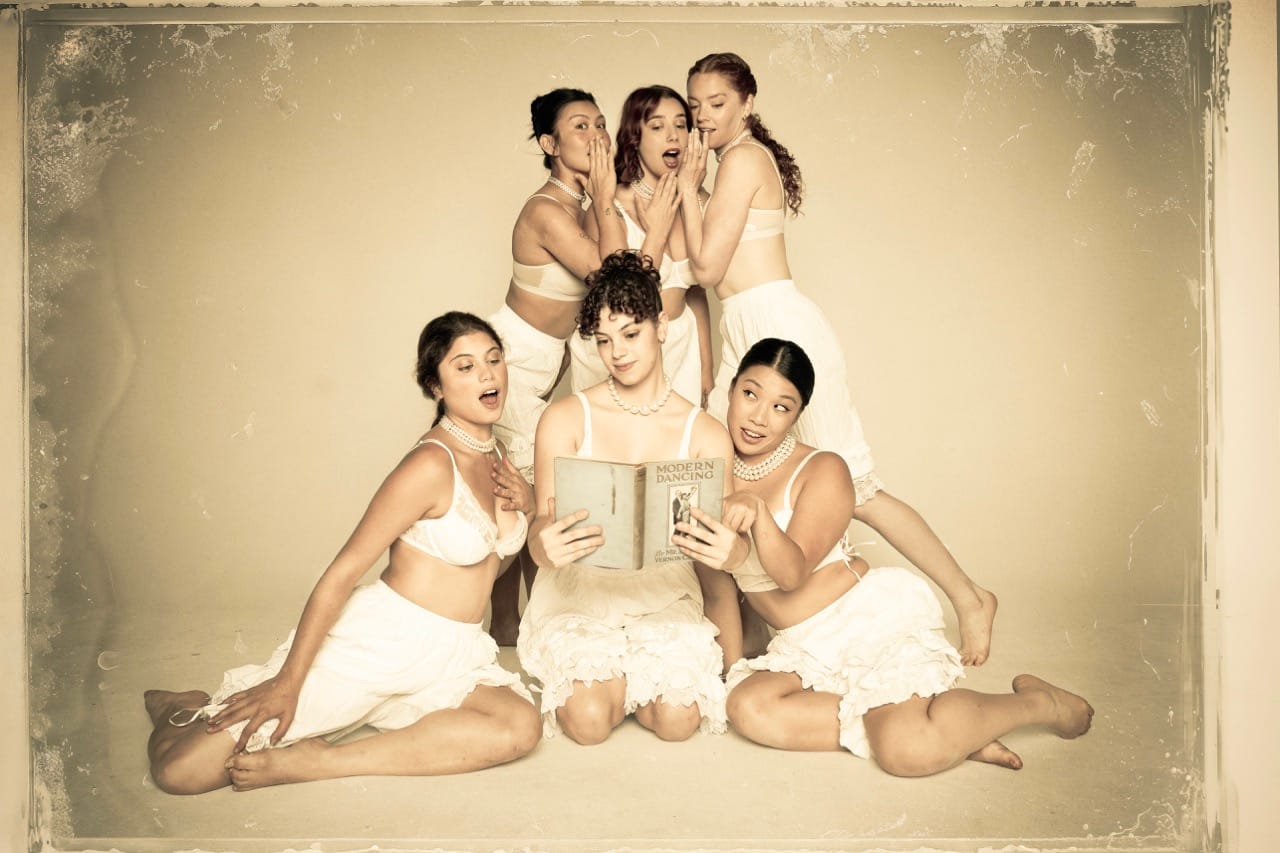



Discussion